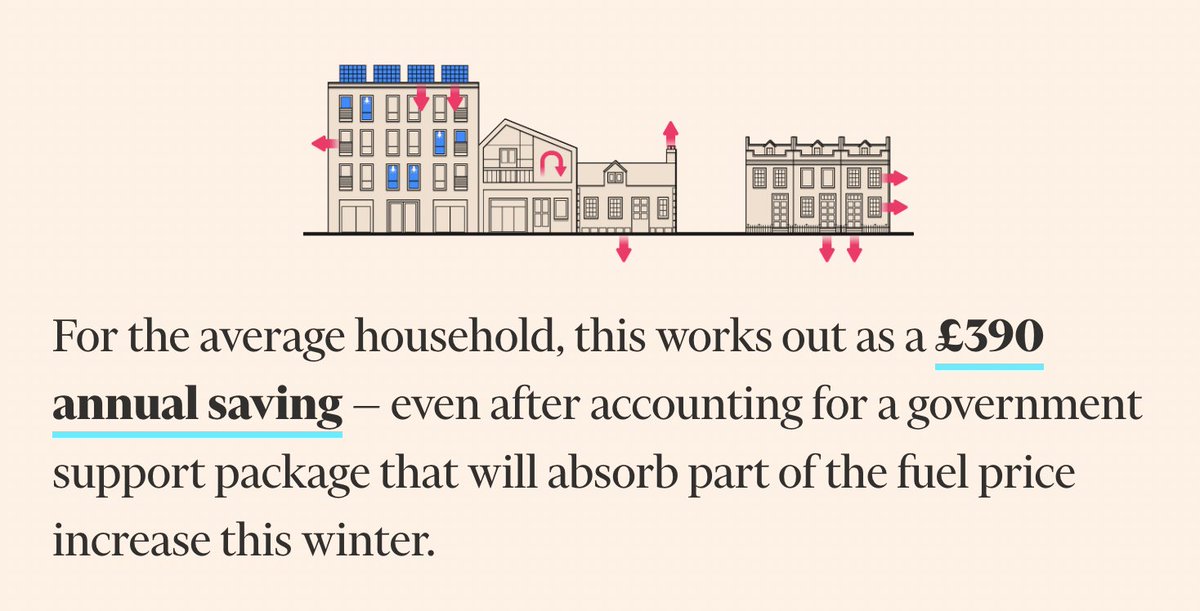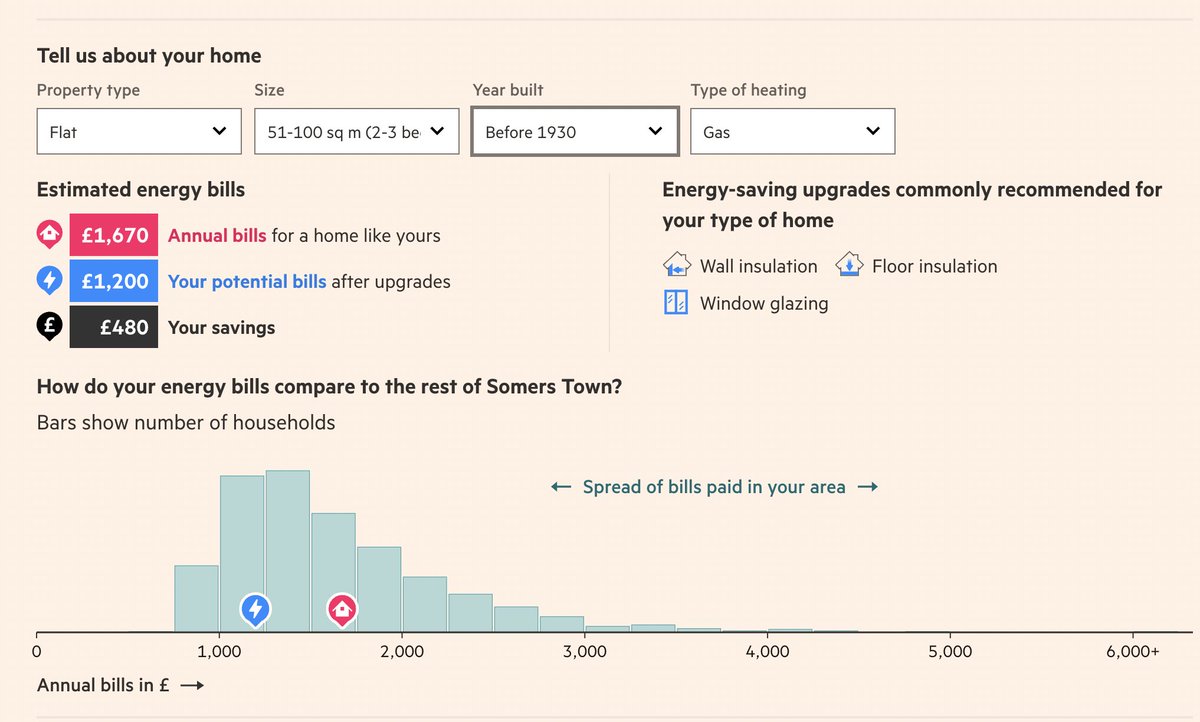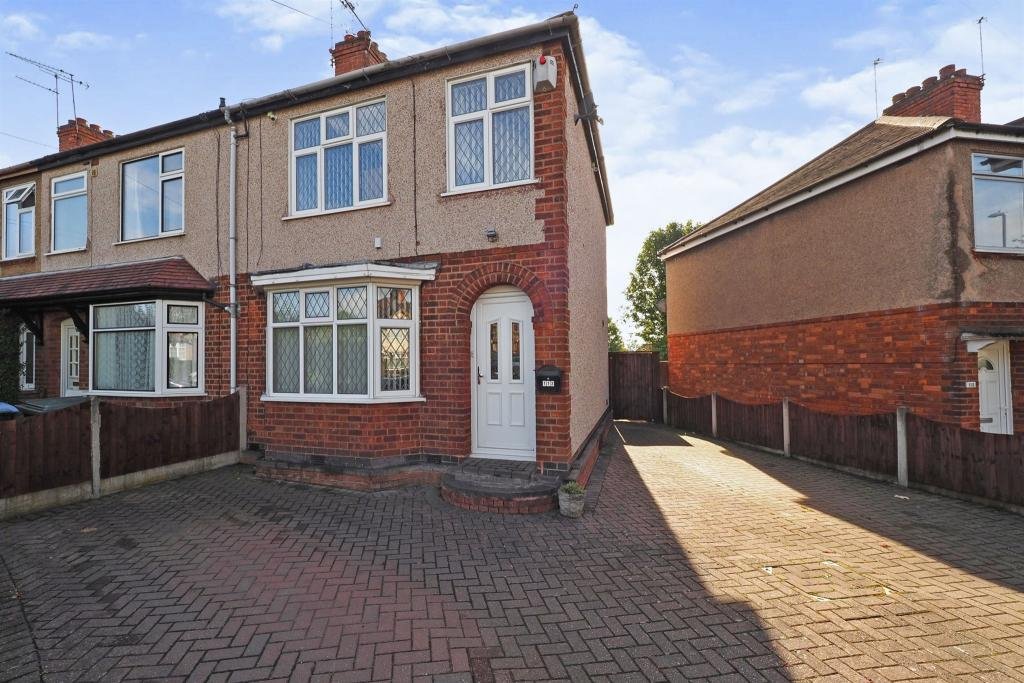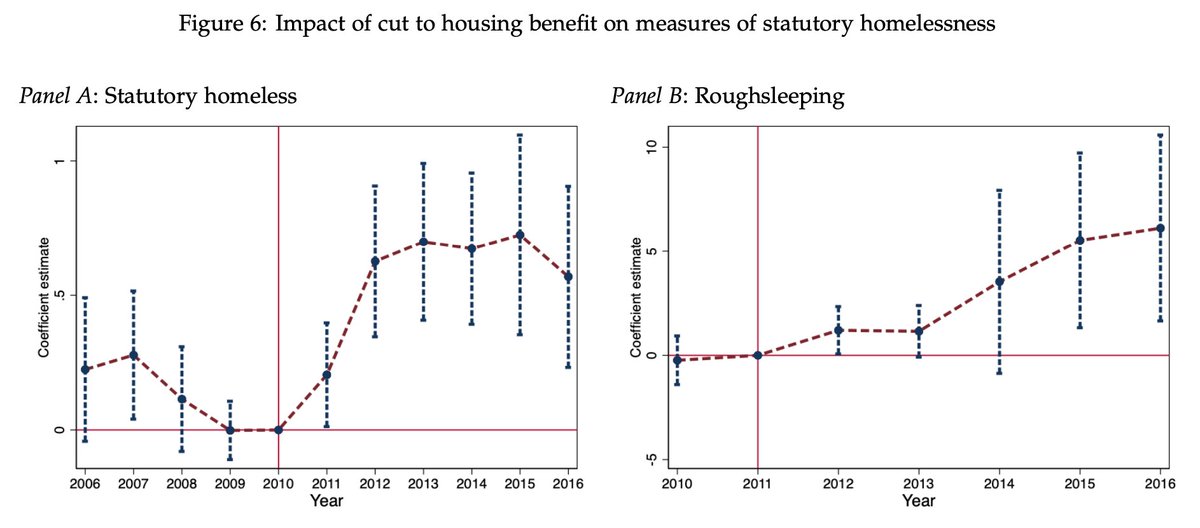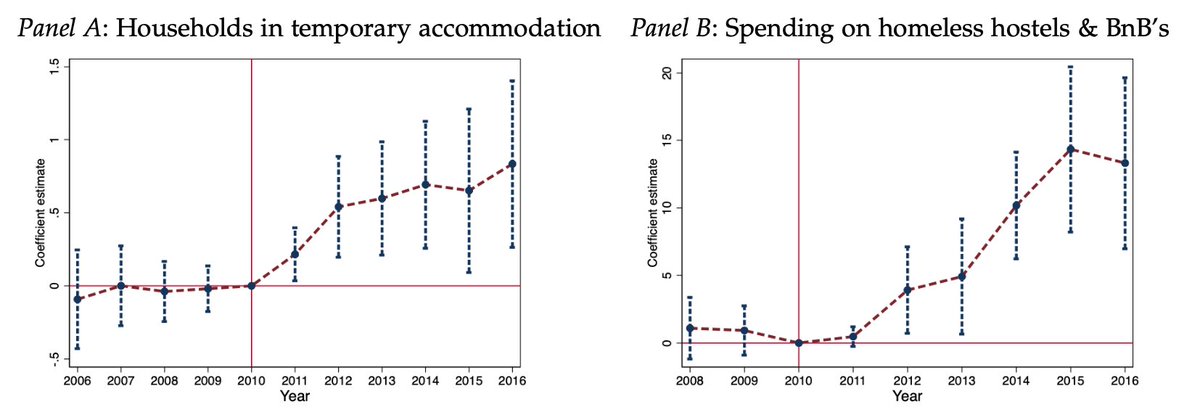Today, in England, millions of voters make a choice in their #LocalElections2023. It’s a good time to share some new research that is related to two policy issues that will have touched many people over the last year: the #energycrisis & #crime.
📰 buff.ly/3Vys0w7
🧵⬇️
📰 buff.ly/3Vys0w7
🧵⬇️

In a nutshell, the paper shows that much of the widely reported surge in burglaries & anti-social behaviour could have been avoided, had the government provided more targeted energy price subsidies or had UK invested more in making homes more energy efficient. Last summer, ... 



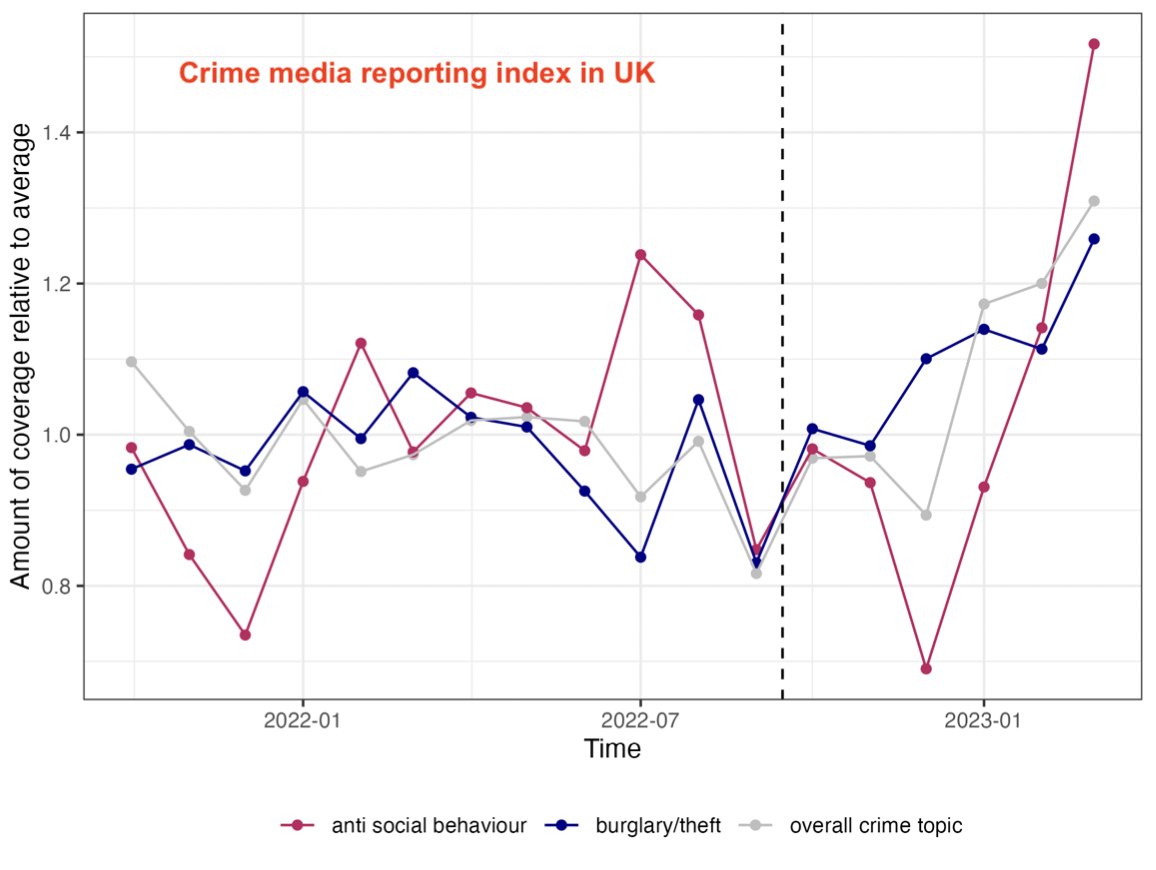



I modelled the impact of the energy price shock down to the property level for millions of homes. More #energyinefficient homes would see a bigger increase. Part of this work was reported in @FT as an interactive story ig.ft.com/uk-energy-effi…. This set up a framework to study... 
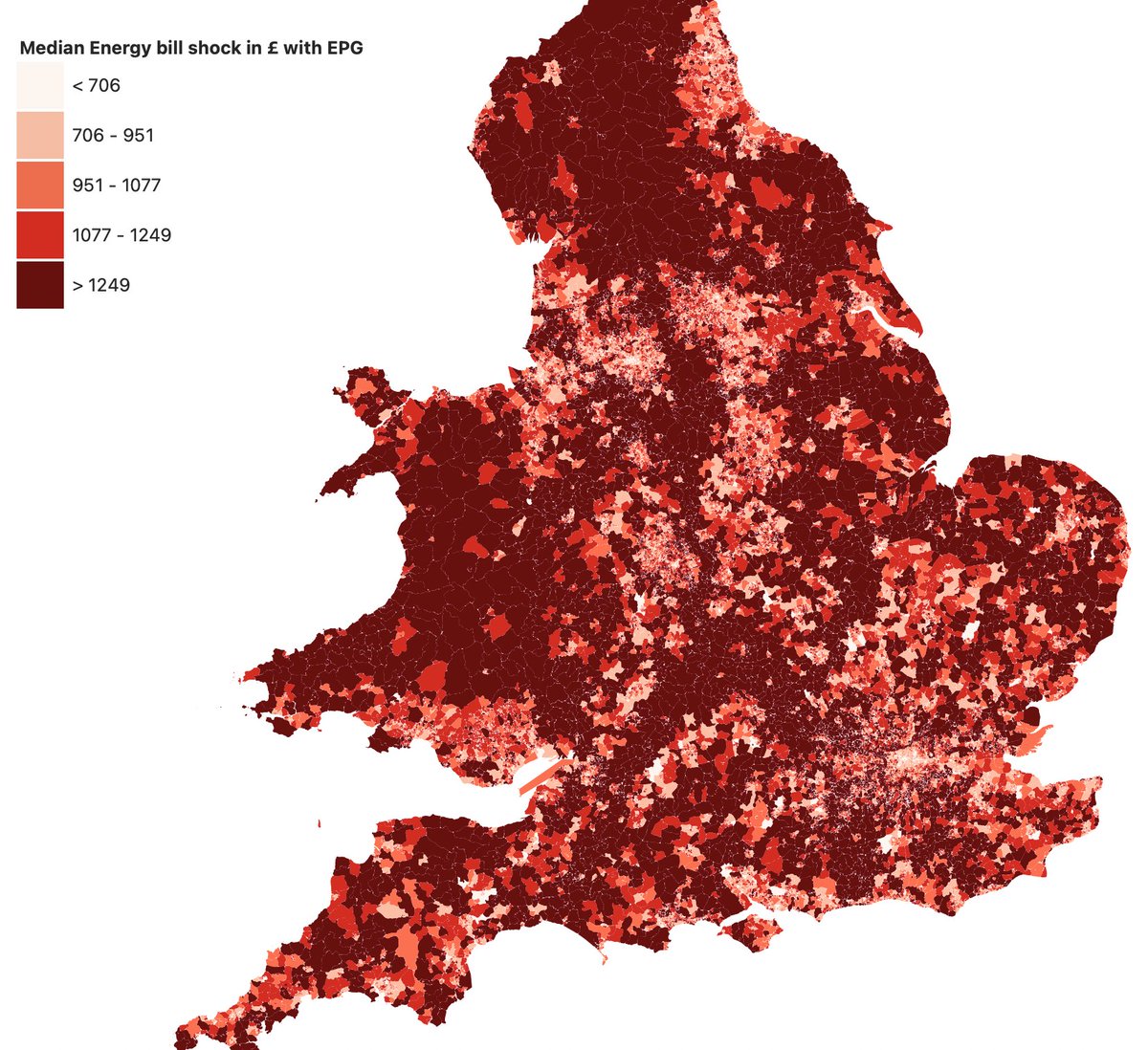
Whether socio-economic outcomes for people and places more affected owing to the poor energy efficiency would experience different impacts. The choice to make the #EnergyPriceGuarantee not targeted matters here a fair bit. I wrote about that here:
https://twitter.com/fetzert/status/1582020920020938753
Originally I wanted to study data on #foodbank use, health outcomes, in addition to crime to test whether, due to the energy bill support being untargeted, deprivation increases. I did not (yet) get data on the first two. But crime data is now available until March 2023. So...
What do the data say? Well, in places that were predicted to be more exposed to the energy price shock - despite the #EnergyPriceGuarantee - we see pronounced increases in burglaries and anti-social behavior. This finding is very robust to many ways of looking at the data. Now... 


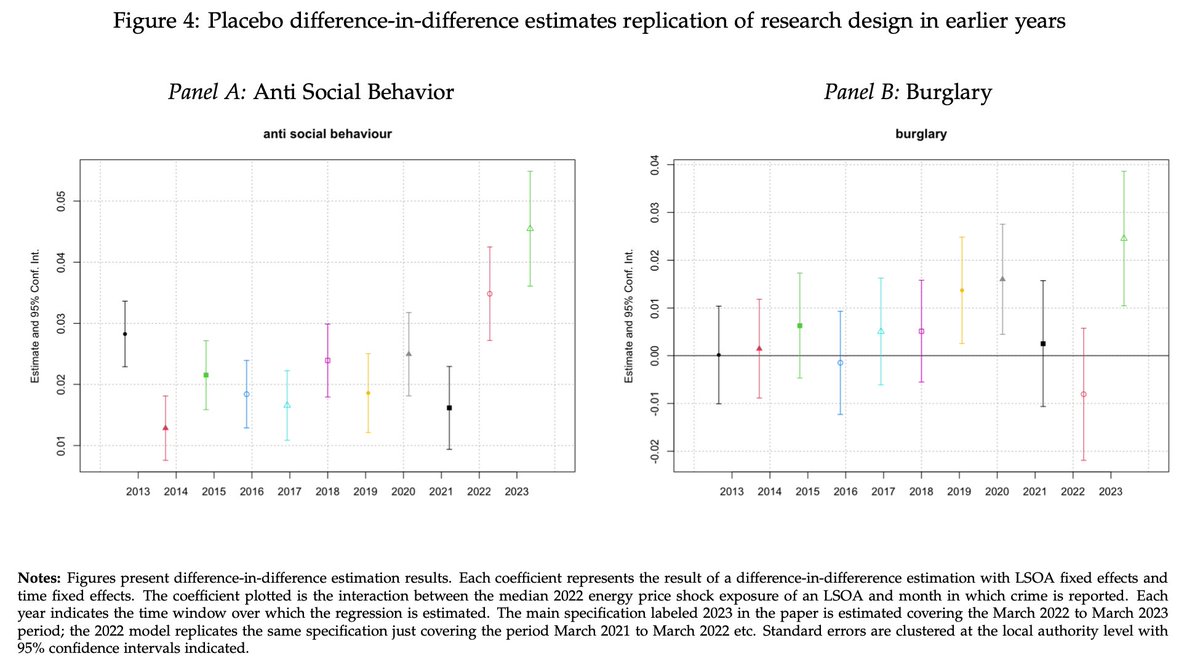
If we take the estimates at face value: the EPG mediated energy price shock is responsible for a 18% increase in anti-social behaviour; & a 7% increase in burglaries. This is better than what would have happened had the govt not intervened. But the govt could have done better... 

A Two-Tier tariff that would have seen 12 million households better off and not cost more while at least halving the impact on crime. And, if the housing stock had been more energy efficient, the estimates suggest we could have avoided an increase in crime altogether.
With @ben_moll, @jagjit_chadha and @AdrianPabst1 we discussed many policy alternatives at a @NIESRorg event last year. The Treasury announced a more targeted social tariff for quite some time, but not much has happened. Policy choices can make a difference and #ClimateAction...
may offer much more indirect societal benefits such as improved #Resilience and less #crime. But for that, politicians need to make the right policy choices and the public sector needs to have the resources and mandate to be able to deliver. This is part of a wider agenda...
you can follow this research here at @fetzert or on the other elephant site. Or on trfetzer.com/climate-crisis… which will be revamped in the coming weeks.
• • •
Missing some Tweet in this thread? You can try to
force a refresh

 Read on Twitter
Read on Twitter


